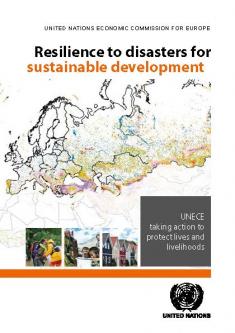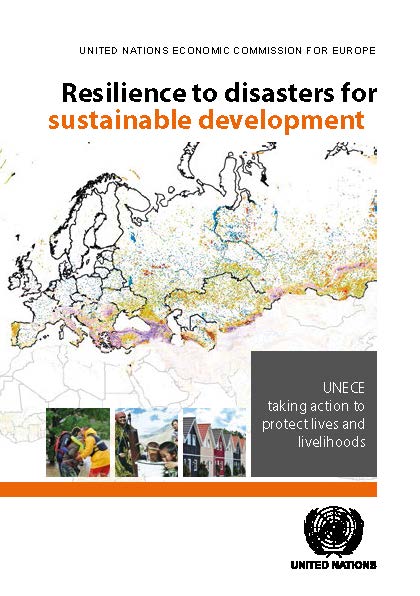Published:


Resilience to disasters for sustainable development (ECE/INF/NONE/2015/2/Rev.1) – revised in October 2019
All the countries of the United Nations Economic Commission for Europe (UNECE) region, including the most developed, are vulnerable to disasters. As one example, in 2019, the June and July heatwaves in Europe set all-time high temperature records in Belgium, Germany, Luxembourg, the Netherlands, and the United Kingdom and are estimated to have killed close to 1500 people across the continent.
The United Nations Plan of Action on Disaster Risk Reduction for Resilience calls on the United Nations system, both as individual organizations and collectively, to “make disaster risk reduction a priority”. UNECE work plays a crucial role in disaster preparedness in its region and — through its recommendations, treaties and best practice — well beyond its boundaries. Many UNECE activities set out binding rules and obligations for States and international organizations that contribute to a more sustainable and resilient pattern of development.
UNECE also promotes the increased implementation of international standards and other risk management tools by all stakeholders. A first outcome of this work is the UNECE Recommendation P on “Crisis Management within a Regulatory Framework” that presses governments to design and implement crisis management functions as part of the regulatory frameworks of all key economic sectors, integrating best practice from international standards in the management of emergencies.

